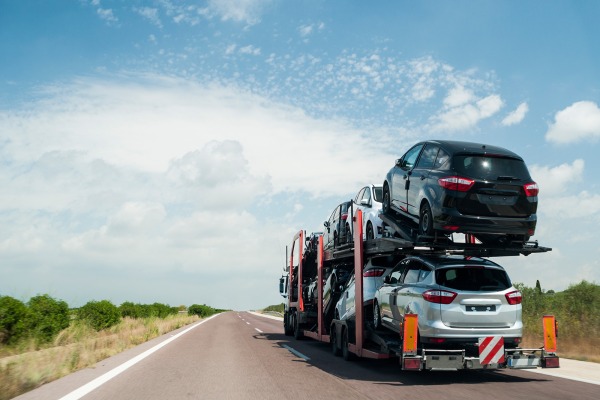
It's tempting to think you can get a better deal (or find that rare car) by shopping out of state. But when you try to register the car in your home state, it could turn into a bureaucratic nightmare. So before you make a deal, find out what your state's registry will require to make the vehicle street legal.
There are three areas to research up front:
1. Emissions requirements
2. Sales tax collection
3. Transporting the vehicle before you register it
As you consider these issues, keep in mind that buying the car from a private party will be different from purchasing it at a dealership, which can answer registry questions and provide the necessary paperwork. When you buy from a private party, you have to deal with these issues on your own.
There are other out-of-state buying concerns we don't cover here, such as pre-purchase vehicle inspection and shipping. For information on those, read "Buying a Car Sight Unseen." For advice on general registration problems, check out "Avoiding DMV Car-Buying and Car-Selling Hassles."
Checking Emissions Requirements
California has the strictest air quality standards in the nation, so most manufacturers build their vehicles to meet its regulations. Fourteen other states, plus the District of Columbia, adopted the standards set by the California Air Resources Board (CARB). Buying a car in any of those states means it will pass the requirements of all 50 states. However, some cars are still made only to be sold in non-CARB states. If you bought a new car in a non-CARB state, you might not be allowed to register it in a CARB state.
The states adopting CARB standards include Arizona, Connecticut, Maine, Maryland, Massachusetts, New Jersey, New Mexico, New York, Oregon, Pennsylvania, Rhode Island, Vermont and Washington, as well as the District of Columbia.
There are many exceptions to registering non-CARB cars in CARB states. For example, here are the DMV rules and exemptions for registering non-CARB cars in California. Note that once a non-CARB vehicle has more than 7,500 miles, it is no longer considered new and can be registered in California, assuming it can pass the smog test.
Check the Web site for your state's DMV or registry of motor vehicles to see what laws govern the registration of out-of-state vehicles.
Locating the Emissions Plaque
Every car has a plaque that tells if it can be sold in California, and, by extension, any of the other CARB states. The plaque is either on the underside of the hood or, in some cases, in the door jamb. The owner's manual will usually describe where the plaque is located.
However, if you are shopping remotely, and need to know if the car conforms to CARB standards, you should ask the salesperson (or private seller if the car has been driven less than 7,500 miles) to confirm that it is 50-state compliant. If the seller seems unsure, request a photo of the vehicle's emissions plaque.
Taxing Issues
Often, people mistakenly assume that they can save money by purchasing a car in a state with a lower sales tax. The tax collectors are way ahead of you: You pay sales tax based on where you register the car, not where you buy it.
In some cases, the dealership where you buy the car will collect your state's sales tax and then pass it along to your home state. However, keep careful records that show you paid the tax to avoid having to pay it a second time when you register the car.
If it's a private-party sale, the DMV in most states collects sales tax when you register the car. Sales tax is a percentage of the purchase price of the car, as reported on the bill of sale.
Handling Temporary Registration
Buying new cars in other states is fairly straightforward. Dealerships employ people trained in DMV rules to assist in the transaction. The dealer will give you a temporary registration to allow you to drive the car home.
However, buying a used car from a private party can be problematic. The seller should give you a signed title so you can prove you are the new owner. Depending on the laws of your state, you may also need to apply for a temporary registration so you can drive the used car back home and complete the registration.
If your home state requires a smog certification, this is your responsibility. It's smart, however, to ask the seller for proof that the vehicle has recently passed a smog test so you can see if it is likely to pass in your state.
To sum up: Because of potential registration problems, it's always a good idea to buy cars in your home state. However, if you are a bargain shopper or someone looking for a rare car, the entire nation can be your car lot. Just make sure you understand these three important issues — emissions, sales tax and transportation — before you seal the deal.